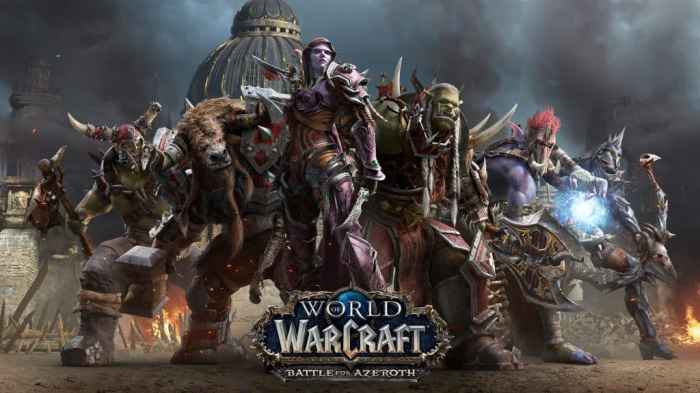DirectX 12 Windows 7 support select games? Yeah, it’s a trickier situation than you might think. While officially unsupported, some games manage to run DirectX 12 on Windows 7 using clever workarounds like emulation layers or modified drivers. This means a few lucky gamers can experience the benefits of DirectX 12’s performance boosts, even on an older OS. But it’s not a smooth ride; expect performance hiccups and potential instability. We’ll dive into the technical hurdles, explore the games that defy the odds, and weigh the pros and cons of this unconventional approach. Buckle up!
This deep dive explores the technical reasons behind the inherent incompatibility between DirectX 12 and Windows 7, detailing the API differences that create this roadblock. We’ll then highlight games that surprisingly work with DirectX 12 on Windows 7, examining the specific workarounds employed and their impact on performance. We’ll compare DirectX 11 and DirectX 12 performance on Windows 7 using these workarounds, analyzing benchmarks and providing concrete examples. Finally, we’ll discuss the challenges faced by developers, potential solutions, and alternative options for gamers sticking with Windows 7.
DirectX 12 Compatibility with Windows 7: Directx 12 Windows 7 Support Select Games
So, you’re wondering why your shiny new DirectX 12 game refuses to run on your trusty Windows 7 machine? It’s not just you; it’s a fundamental incompatibility, a mismatch of expectations between a cutting-edge graphics API and a slightly older operating system. Think of it like trying to fit a square peg into a round hole – it just doesn’t work without some serious modifications.
DirectX 12’s incompatibility with Windows 7 stems from a significant architectural shift in how the API interacts with the operating system and hardware. Windows 7, while a capable OS, lacks the underlying kernel features and driver support necessary for DirectX 12’s efficient and low-level access to the graphics hardware. This means that while some games *might* be *theoretically* adaptable, the effort required often outweighs the potential benefits, leading to most developers focusing on supporting more modern operating systems.
Technical Reasons for Incompatibility
DirectX 12 relies heavily on features introduced in Windows 8 and later, primarily focusing on improved low-level hardware access and resource management. These features, absent in Windows 7, create a critical barrier. DirectX 12 introduces a more granular level of control over the GPU, allowing developers to optimize performance at a much finer level than previous versions. However, this requires deeper integration with the operating system’s kernel, which Windows 7 simply doesn’t provide. This deeper integration is crucial for DirectX 12’s features like asynchronous compute and multi-threading capabilities, which require specific kernel-level support not present in Windows 7.
API Differences Preventing Direct Execution, Directx 12 windows 7 support select games
Several key API differences directly hinder the execution of DirectX 12 applications on Windows 7. These are not just minor tweaks; they represent significant architectural changes. For example, DirectX 12 utilizes the Windows Driver Model (WDM) version 2, whereas Windows 7 primarily supports WDM version 1. This difference alone creates a substantial compatibility hurdle. Furthermore, DirectX 12’s enhanced scheduling and resource management features rely on kernel-level enhancements unavailable in Windows 7. Finally, the way DirectX 12 handles memory management and resource allocation differs significantly from previous versions, necessitating support not found in Windows 7’s kernel.
DirectX 11 vs. DirectX 12: Relevant Feature Comparison
The following table highlights key differences between DirectX 11 and DirectX 12, emphasizing features impacted by Windows 7 limitations:
| Feature | DirectX 11 | DirectX 12 | Windows 7 Impact |
|---|---|---|---|
| Driver Model | WDM 1 (primarily) | WDM 2 | Lack of WDM 2 support hinders DirectX 12 functionality. |
| Resource Management | Driver-managed | Application-managed | Windows 7’s kernel lacks the necessary support for efficient application-managed resources. |
| Asynchronous Compute | Limited support | Enhanced support | Windows 7’s kernel limitations restrict the effective use of asynchronous compute. |
| Multi-threading | Limited multi-threading capabilities | Significant improvements in multi-threading | Windows 7’s kernel lacks the necessary support for optimal multi-threading in DirectX 12. |
So, can you run DirectX 12 games on Windows 7? The short answer is: sometimes, with caveats. While official support is absent, creative workarounds allow some games to function, albeit with performance trade-offs. The reality is that Windows 7’s age and the significant advancements in DirectX 12 create an uphill battle. Upgrading to a supported OS remains the most reliable solution for optimal performance and stability. However, for those clinging to their trusty Windows 7 setup, understanding the limitations and exploring the available workarounds can unlock access to some modern titles—just don’t expect a flawless experience.
 Blockchain Essentials Berita Teknologi Terbaru
Blockchain Essentials Berita Teknologi Terbaru
